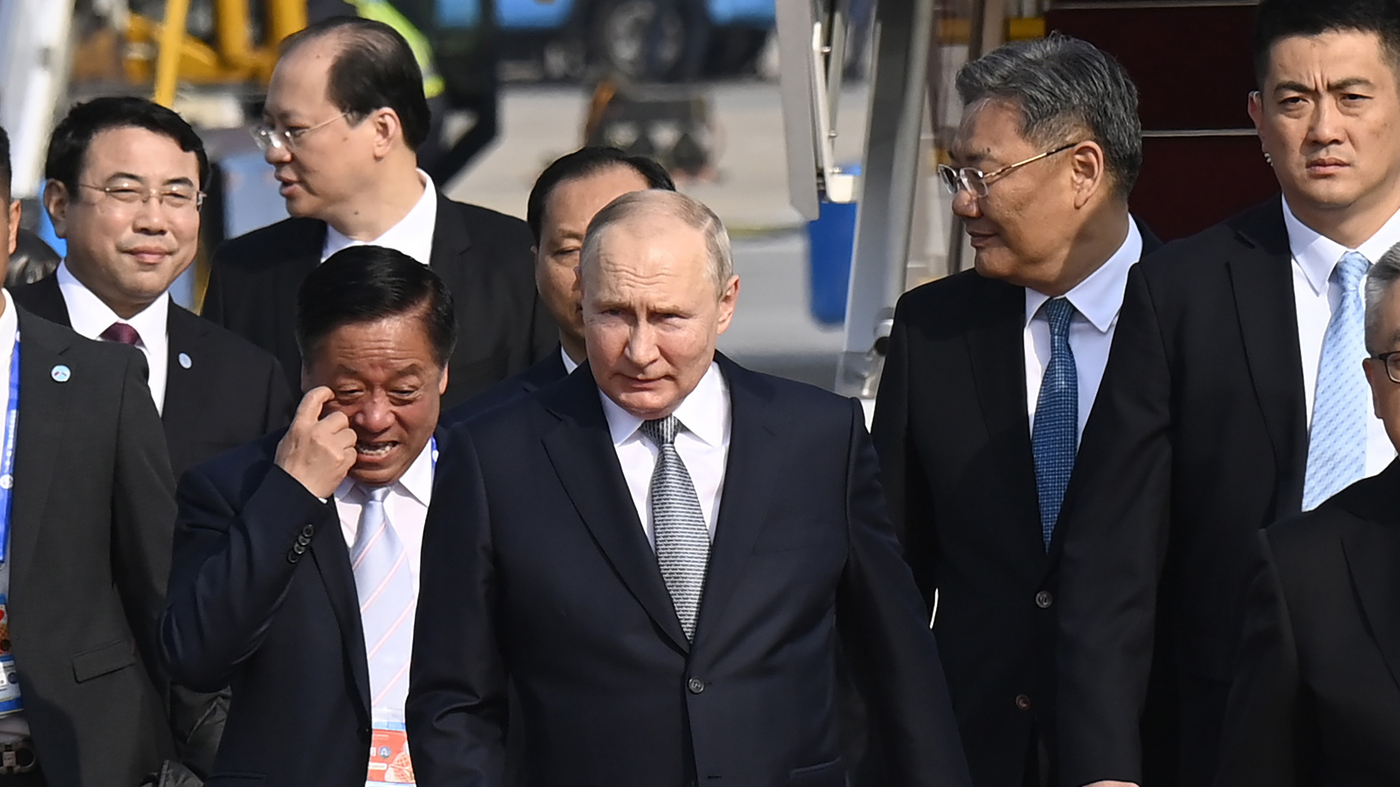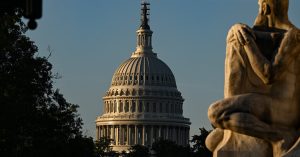
Putin is starting a visit to China that will demonstrate Moscow’s ties with Beijing
Putin and China in the Context of Belt and Road: From China to the Middle East, from the Kremlin to the Development of Central Asia
Just weeks before Russia’s invasion of Ukraine last February, Putin met with Xi in Beijing and the sides signed an agreement pledging a “no-limits” relationship. The international community has firmly rejected Beijing’s attempts to portray itself as a neutral peace broker.
The two countries have forged an informal alliance against the United States and other democratic nations that is now complicated by the Israel-Hamas war. China has forged ties with countries such as Russia and Iran in an effort to challenge the power of the US in the Middle East and balance its relationship with Israel.
Putin’s plane was met by an honor guard as the Russian leader began his visit that is also a show of support for Chinese leader Xi Jinping’s signature “Belt and Road” initiative to build infrastructure and expand China’s overseas influence.
“Yes, we think it is an attempt by the People’s Republic of China to put someone under its thumb, but we don’t see that as a big deal,” he said, in a transcript released by the Kremlin.
Putin will be among the highest profile guests at a gathering marking the 10th anniversary of Xi’s announcement of the BRI project, which has laden countries such as Zambia and Sri Lanka with heavy debt from contracts with Chinese companies to build roads, airports and other public works they could not otherwise afford. U.N. Secretary-General António Guterres has praised the Chinese policy as bringing development to neglected areas.
Putin was asked by reporters about his visit, and he said it would include talks on Belt and Road related projects, as well as efforts by an economic alliance of former Soviet Union nations in Central Asia to achieve common development goals.
He also downplayed the impact of China’s economic influence in a region that Russia has long considered its backyard and where it has worked to maintain political and military clout.
Alexander Gabuev said that from China’s perspective, Russia is a safe neighbor that is friendly and a source of cheap raw materials, supporting Chinese initiatives on the global stage.
“Both countries are self-sufficient in terms of security and they benefit from partnering, but neither really requires a security guarantee from the other. He said they preach strategic autonomy.
There will be no military alliance, but there will be closer military cooperation, more interoperability, more cooperation on projecting force, and more work on a missile defense for the U.S.
Belt and Road Initiative: China’s First High-profile External Investment Investment Solution to the Middle-East and the Middle East, Observer Announces
China is the only major country remaining that still has a chance for dialogue with Putin, and it doesn’t want to lose that, according to the founder and president of the Center for China and Globalization.
Beijing says the BRI is a global good that helps close the infrastructure gap. But as China’s relationship with the West continues to fracture, observers are scrutinizing the geopolitical implications of the initiative, and they say the list of high-profile attendees says it all.
China says leaders and representatives from some 130 countries and 30 global organizations are expected to attend the event, where Xi will give a keynote on Wednesday.
The 10th anniversary of the Belt and Road Initiative, a signature foreign policy initiative for China, is being celebrated this week by representatives from dozens of countries.
Russian President Putin is present at a meeting. Hungarian Prime Minister Viktor Orban is in town, too. The Taliban, who are not officially recognized by any government, say they are also coming.
More than 150 countries have signed agreements with Beijing under the auspices of the BRI since its inception a decade ago. There have always been controversies surrounding the Chinese initiative.
It was launched with the goal of eliminating divisions between East and West according to the director of the China Studies Center.
She says that Belt and Road was about reestablishing the old Silk Road. “After the years, it became clear that the Belt and Road is more than a project for economic growth in Asia, it is also a project for peace and security in the region.”
Although Chinese state-run companies have made significant investments in Europe, including in some critical shipping ports, some countries have been resistant to the project.
China has pivoted, focusing more on wooing the developing countries of the so-called “global South,” including in Africa and Latin America, Berzina-Cerenkova says. Beijing’s efforts got worse as relations with the U.S. deteriorated.
“China wants to project an impression that it’s championing the agenda of economic development — namely through infrastructure-building and industrialization,” she says. “At the same time, Beijing has taken advantage of many critiques of the Western countries’ approach to foreign aid, which contains conditionalities related to good governance and human rights, and seeks to portray itself as a pragmatic partner.”
In 2021, the European Commission — the European Union’s executive branch — introduced an international investment and connectivity program called the Global Gateway. Last year, the U.S. launched its Partnership for Global Infrastructure and Investment at the Group of Seven summit. The US gave its endorsement to the India- Middle East-Europe Economic Corridor initiative.
With China’s economy slowing down, the amount of projects being done and the amount of money invested in the Belt and Road Initiative have decreased. This is happening at a time when an increasing number of debt-laden countries such as Zambia are undergoing debt restructuring.
So as a large creditor, China is also under pressure. A recent research by the New York-based Rhodium Group shows that in the last three years, over $78 billion worth of borrowing had turned sour.
The Belt and Road Initiative’s future is questioned by some pundits. The two-day meeting in Beijing shows that the political significance of the project is still strong.

